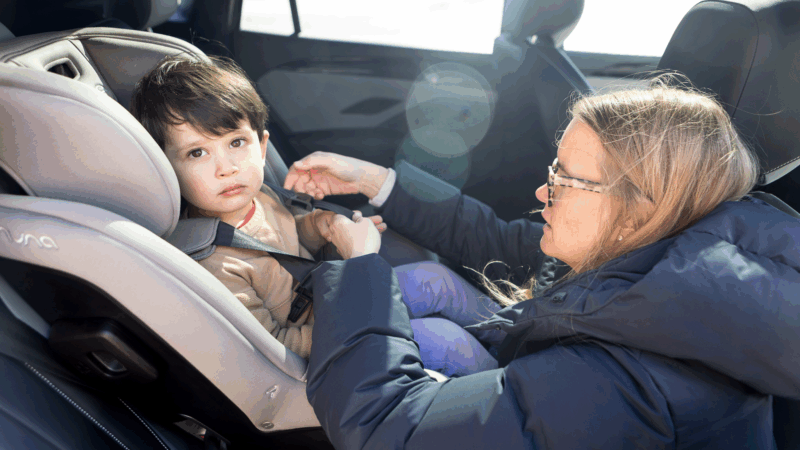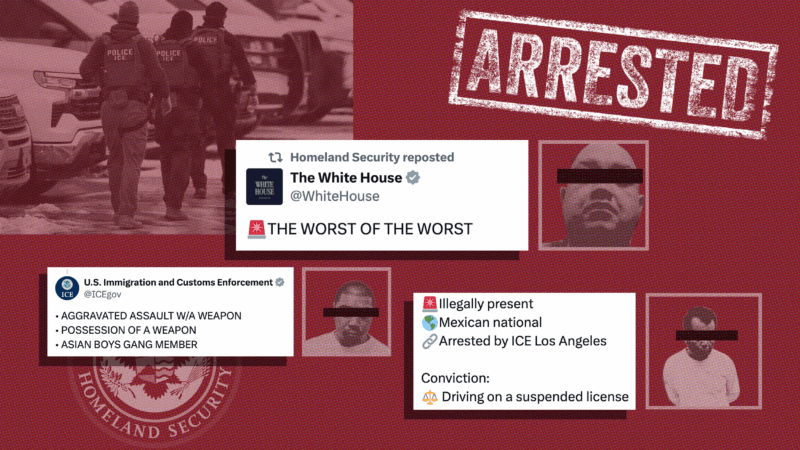How To Get Tested For COVID-19 In Alabama
Updated — Sunday, March 22, 4:55 p.m.
Testing for COVID-19, or coronavirus, is now available through the Alabama Department of Public Health (ADPH) state laboratory, as well as private labs throughout the state. The process varies depending on location, but in all cases, presumed positive test results must be reported to ADPH within four hours of identification. ADPH then confirms these positive results before adding them to its statewide count of confirmed cases online. As of Sunday evening, Alabama had 22 confirmed cases of coronavirus, with 12 of those in Jefferson County.
UAB
People can get tested at UAB by appointment only. The drive-thru testing center will be at University Blvd and 22nd St S. at a former Southern Research Institute site.
Alabama Department of Public Health
Testing through ADPH is free, but a patient must be referred by a health care provider.
For someone to get tested through the state laboratory, the first step is to call their health care provider. Those who do not have one can call a hotline set up by ADPH. That number is 1-888-264-2256. ADPH officials advise to first call a health care provider, rather than going in to be seen, to help avoid potential exposure to other patients and health care staff.
ADPH is no longer requiring patients to meet strict criteria to be tested for COVID-19, but the department requires that a health care provider request the test and perform specimen collections.
“Any person that a physician determines should be tested qualifies for testing,” says a statement on the department’s website. “We are recommending that those at the highest risk seek testing for COVID-19.”
If approved for testing, a health care provider would take a swab from the patient’s nose. This specimen is then shipped overnight to the ADPH lab, where a COVID-19 test kit provided by the Centers for Disease Control and Prevention (CDC) is used to check for the virus. The CDC in Atlanta then confirms test results, which are sent to the health care provider. ADPH says it has the ability to test 150 specimens per day. The whole process, including results, can take anywhere from 24 to 72 hours.
Private Laboratories
Health care providers may also choose to contact a commercial laboratory for testing.
Last week, Quest Diagnostics and LabCorp announced capabilities to test for COVID-19. Both national laboratories require specimens to be collected and ordered by a health care provider and then shipped to a lab for testing. In a statement on its website, LabCorp says it is “rapidly expanding” its testing capacity and that it takes about three to four days to return testing results after a specimen is collected.
Also last week, Assurance Scientific Laboratories (ASL) received FDA approval to offer drive-thru testing for coronavirus. The Alabama-based lab offers the fastest turnaround, promising to process a patient sample and provide results within four hours. There were two locations where ASL offered onsite screening and testing, but a message on the company’s website Sunday evening said it moved its drive-through testing from its Vestavia and Bessemer locations to Church of the Highlands on Grandview Parkway.
Like other labs, ASL requires that a health care provider order the COVID-19 test. Providers can order testing online, via email or phone. Individuals who do not have a provider’s order can also show up to one of the testing locations and see a provider onsite.
“Due to the concern of exposure in clinics and waiting rooms, healthcare providers have expressed desire to send patients for off-site testing,” a statement on the company’s website says. “In response to this need, we have created a drive-through patient sample collection service.”
ASL says it currently has the capacity to test more than 10,000 patient samples per week.
A long line formed outside of Assurance Scientific Labs in Birmingham, Alabama, as they opened two drive-thru testing centers for coronavirus today. https://t.co/N6hW89pYUK pic.twitter.com/XmsM99O0WI
— AccuWeather (@accuweather) March 14, 2020
Testing through private laboratories is not free, though it could be covered by an insurance provider. Officials with Assurance Laboratories say the COVID-19 test costs $100 out-of-pocket, but they say most insurance providers will cover most or all of the cost.
In a statement, Blue Cross and Blue Shield said it would cover “medically necessary diagnostic tests that are consistent with CDC guidance related to COVID-19 at no cost to our members with fully insured individual, employer-based, Federal Employee Program, and Medicare Advantage plans.”
Trussville Urgent Care is also providing drive-through COVID-19 testing in conjunction with Assurance Laboratories.
Screening Sites
Some hospitals are implementing special screening procedures for COVID-19. Starting Monday, March 16, Tuscaloosa’s Druid City Hospital (DCH) will operate a remote screening facility in the parking area near the DCH laundry facility.
“Screening services will be offered from 8 a.m. until 5 p.m., seven days a week, until the need diminishes,” reads a statement on the hospital’s website. “Community members who think they may have contracted the virus will be able to pull up and speak to a provider directly from their own vehicle. Providers will conduct a verbal and visual screening based on the most recent CDC guidelines.”
Based on this screening, health care providers will determine whether or not a patient needs to seek further care and/or be tested through the ADPH state lab.
Officials with UAB Hospital say they are working to establish several on-site labs in the near future. They ask all individuals experiencing COVID-19 symptoms to first call their primary health care provider or urgent care facility.
“Do not go to your nearest primary health care provider, emergency department or urgent care clinic before calling,”officials said in a statement.
ADPH is working to expand access to coronavirus screening. In a press conference Friday, State Health Officer Dr. Scott Harris said the department hopes to create up to 25 screening sites around the state using recently allocated federal and state funding.
Parents, are you sure your kid’s car seat is installed right? Here’s how to know
In this visual guide, certified car seat experts walk through common installation mistakes and how to fix them. Learn what a secure car seat base and a tightly fastened tether look like and more.
Trump announces ‘major combat operations’ in Iran
Israel and the U.S. have launched strikes against Iran, with explosions reported in Tehran and air raid sirens sounding across Israel.
Trump says he is ‘not happy’ with the Iran nuclear talks but indicates he’ll give them more time
U.S. President Donald Trump said Friday he's "not happy" with the latest talks over Iran's nuclear program but indicated he would give negotiators more time to reach a deal to avert another war in the Middle East.
Bill Clinton says he ‘did nothing wrong’ with Epstein as he faced grilling over their relationship
Former President Bill Clinton told members of Congress on Friday that he "did nothing wrong" in his relationship with Jeffrey Epstein and saw no signs of Epstein's sexual abuse as he faced hours of grilling from lawmakers over his connections to the disgraced financier from more than two decades ago.
How the federal government is painting immigrants as criminals on social media
Experts say this kind of media campaign is unprecedented and paints a distorted picture of immigrants and crime
Pentagon puts Scouts ‘on notice’ over DEI and girl-centered policies
After threatening to sever ties with the organization formerly known as the Boy Scouts, Defense Secretary Hegseth announced a 6-month reprieve







